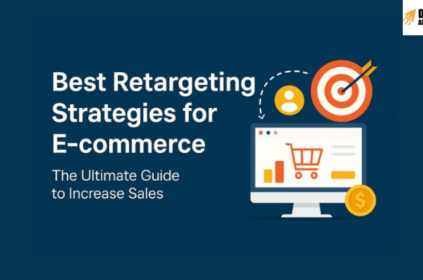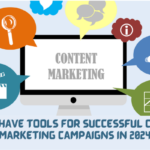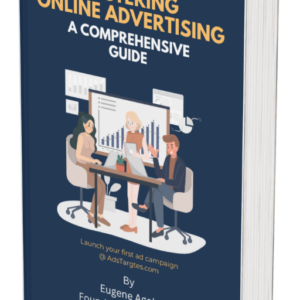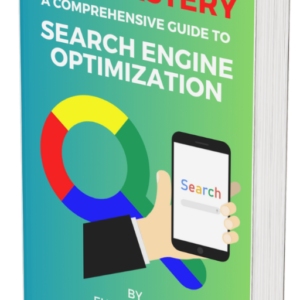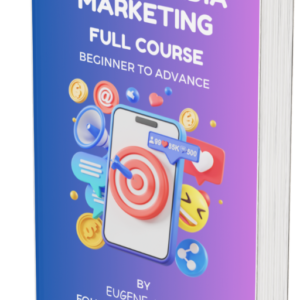In today’s digital age, where consumers are inundated with advertisements and promotional messages at every turn, standing out from the crowd has become increasingly challenging for businesses.
This is where content marketing emerges as a beacon of hope, offering a strategic approach to cut through the noise and capture the attention of your target audience.
Content marketing isn’t merely about flooding the internet with generic blog posts or social media updates. It’s about crafting compelling narratives, sharing valuable insights, and engaging with your audience in meaningful ways.
At its core, content marketing is about building relationships with your customers by providing them with content that educates, entertains, or inspires.
The benefits of content marketing extend far beyond mere brand promotion or lead generation. It’s a multifaceted strategy that can yield many advantages for businesses of all sizes and industries.
From increasing brand awareness to nurturing customer loyalty, content marketing has the power to transform your online presence and drive sustainable growth.
In this comprehensive blog post, we’ll delve into the 10 key benefits of content marketing, exploring how it can help you to establish a formidable online presence, connect with your target audience on a deeper level, and achieve your business objectives with finesse.
So, without further ado, let’s dive into the world of content marketing and uncover its myriad advantages.
What is Content Marketing?
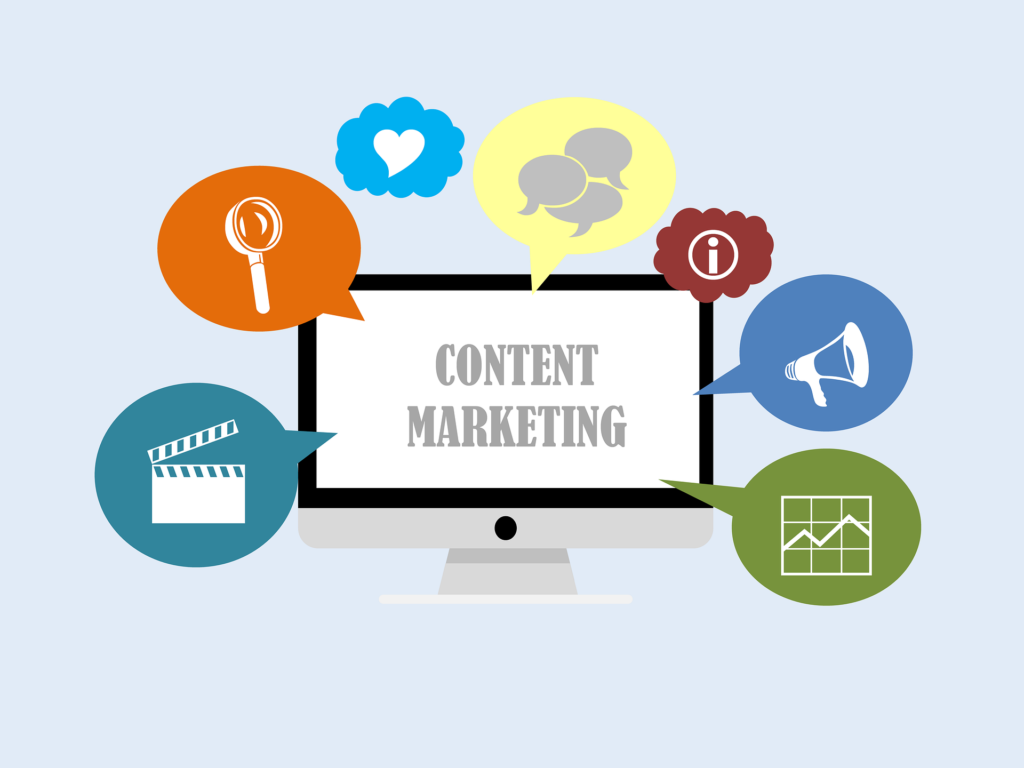
Content marketing revolves around the creation and dissemination of content across various channels such as websites, blogs, social media platforms, email newsletters, and more.
This content can take many forms, including articles, blog posts, videos, podcasts, infographics, ebooks, webinars, and case studies, among others.
The primary goal of content marketing is to provide value to the audience by addressing their needs, interests, and pain points. By offering valuable and relevant content, businesses can attract the attention of their target audience, establish themselves as authorities or thought leaders in their industry, and ultimately drive profitable customer action.
Content marketing operates on the principle of reciprocity, whereby businesses provide valuable content to their audience with the expectation of receiving something of value in return, such as brand awareness, website traffic, leads, conversions, or customer loyalty.
Moreover, content marketing is a long-term strategy that focuses on building relationships with the audience over time rather than achieving immediate sales or conversions.
By consistently delivering valuable content and engaging with their audience, businesses can foster trust, loyalty, and brand affinity, leading to long-term customer relationships and advocacy.
Overall, content marketing is about delivering the right content to the right audience at the right time, to drive profitable customer action while providing value and building trust along the way.
It’s a strategic marketing approach that emphasizes storytelling, education, and relationship-building, ultimately leading to sustainable business growth and success.
10 Benefits of Content Marketing
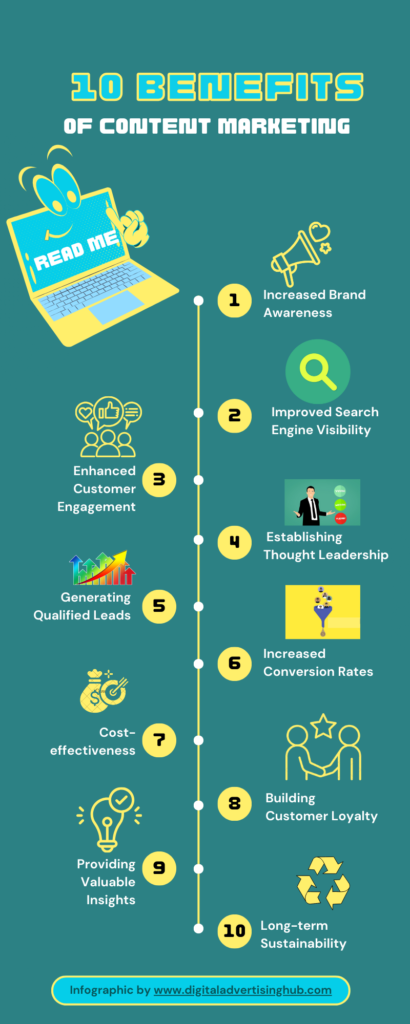
#1. Increased Brand Awareness
In a crowded digital landscape where competition is fierce, brand awareness is paramount. Content marketing serves as a powerful tool for elevating your brand’s visibility and making it stand out amidst the noise.
By consistently creating and distributing valuable content across various channels, you can effectively reach and resonate with your target audience.
Through blog posts, videos, infographics, podcasts, and social media content, you can showcase your expertise, share your unique perspective, and establish your brand’s voice. Each piece of content serves as an opportunity to leave a lasting impression on your audience, fostering recognition and recall.
Moreover, content marketing allows you to tailor your messaging to different segments of your audience, catering to their specific interests, pain points, and preferences.
By delivering relevant and engaging content that addresses their needs, you can forge stronger connections with your audience and cultivate a community of loyal followers.
Furthermore, as your content gains traction and visibility online, it can attract organic traffic to your website, expand your reach through social sharing, and even garner media coverage or backlinks from authoritative sources.
This organic amplification further boosts your brand’s exposure and reinforces its credibility in the eyes of your audience.
In essence, content marketing serves as a cornerstone for building brand awareness in today’s digital landscape. By consistently delivering valuable, relevant, and compelling content, you can elevate your brand’s visibility, expand its reach, and leave a lasting impression on your target audience.
#2. Improved Search Engine Visibility:
In the vast ocean of the internet, being discovered by potential customers is akin to finding a needle in a haystack. This is where content marketing plays a crucial role in improving your search engine visibility and ensuring that your brand emerges as a prominent player in relevant search results.
Search engines like Google prioritize content that is valuable, relevant, and authoritative when determining rankings. By consistently publishing high-quality content that addresses the needs and interests of your target audience, you can signal to search engines that your website is a valuable resource worthy of visibility.
One of the key components of content marketing for improved search engine visibility is search engine optimization (SEO). By optimizing your content with relevant keywords, meta tags, and structured data markup, you can increase its likelihood of ranking higher in search engine results pages (SERPs).
Additionally, content marketing allows you to create a diverse range of content formats, such as blog posts, videos, infographics, and podcasts, which appeal to different types of search queries and user preferences. This ensures that you’re not only catering to textual searches but also capturing the attention of users who prefer visual or auditory content.
Furthermore, as your content gains traction and earns backlinks from other reputable websites, it signals to search engines that your content is trustworthy and worthy of higher rankings. Backlinks serve as endorsements of your content’s quality and relevance, further bolstering your search engine visibility.
In summary, content marketing is instrumental in improving your search engine visibility by creating valuable, optimized, and diverse content that resonates with your audience and signals to search engines that your website is a credible source of information.
By investing in content marketing strategies, you can enhance your brand’s online visibility and attract more organic traffic to your website.
#3. Enhanced Customer Engagement:
In today’s digitally connected world, capturing and retaining the attention of your audience is more challenging than ever. This is where content marketing shines, offering businesses the opportunity to engage with their customers in meaningful and impactful ways.
Effective content marketing is not just about broadcasting messages; it’s about fostering two-way communication and building relationships with your audience. By creating content that resonates with their interests, challenges, and aspirations, you can spark conversations, elicit feedback, and encourage interaction.
One of the key benefits of content marketing for enhancing customer engagement is its ability to provide value to your audience. Whether it’s educational blog posts, entertaining videos, informative infographics, or interactive quizzes, each piece of content should aim to enrich the lives of your audience in some way.
Moreover, content marketing allows you to humanize your brand and showcase its personality. By sharing behind-the-scenes stories, employee spotlights, and user-generated content, you can make your brand more relatable and approachable, fostering a sense of connection and trust with your audience.
Additionally, content marketing enables you to tailor your messaging and content formats to different stages of the customer journey. From awareness and consideration to purchase and advocacy, you can deliver relevant and personalized content that guides your audience through each stage of their buying process.
Furthermore, by actively engaging with your audience through comments, social media, email newsletters, and live events, you can cultivate a community of loyal followers who feel valued and appreciated by your brand.
In essence, content marketing is a powerful tool for enhancing customer engagement by providing value, humanizing your brand, and fostering meaningful interactions with your audience. By creating compelling content and actively engaging with your audience, you can strengthen relationships, build trust, and ultimately drive loyalty and advocacy for your brand.
#4. Establishing Thought Leadership:
In today’s competitive marketplace, establishing thought leadership is essential for standing out from the crowd and positioning your brand as a trusted authority in your industry. Content marketing offers a prime opportunity to showcase your expertise, share valuable insights, and demonstrate your innovative thinking to your target audience.
One of the key benefits of content marketing for thought leadership is the ability to consistently produce and distribute high-quality content that showcases your industry knowledge and expertise. Whether it’s in-depth blog posts, research reports, whitepapers, or webinars, thought-provoking content can help establish your brand as a go-to resource for valuable information and insights.
Moreover, content marketing allows you to leverage various channels and formats to amplify your thought leadership efforts. From social media platforms and industry forums to guest blogging and speaking engagements, you can reach a wider audience and engage with industry influencers to further enhance your credibility and authority.
Additionally, content marketing enables you to address emerging trends, challenges, and opportunities in your industry, positioning your brand as a forward-thinking leader that is at the forefront of innovation. By staying ahead of the curve and offering fresh perspectives, you can attract attention, spark conversations, and shape the discourse within your industry.
Furthermore, by consistently delivering thought-provoking content that adds value to your audience, you can build trust and credibility over time. When your audience views your brand as a trusted source of information and insights, they are more likely to turn to you for guidance, recommendations, and solutions to their problems.
In summary, content marketing is instrumental in establishing thought leadership by consistently producing high-quality content, leveraging various channels and formats, addressing industry trends, and building trust and credibility with your audience.
By positioning your brand as a trusted authority in your industry, you can differentiate yourself from competitors, attract a loyal following, and drive long-term success.
#5. Generating Qualified Leads:
In the realm of digital marketing, generating leads is crucial for fueling your sales pipeline and driving business growth. Content marketing serves as a potent lead generation tool by attracting and nurturing potential customers through valuable and relevant content.
One of the primary benefits of content marketing for lead generation is its ability to attract qualified prospects to your brand. By creating content that addresses the pain points, challenges, and interests of your target audience, you can attract individuals who are actively seeking solutions that your products or services can provide.
Furthermore, content marketing enables you to tailor your messaging and content offers to different stages of the buyer’s journey. From awareness and consideration to decision-making, you can create content assets such as ebooks, whitepapers, case studies, and product demos that resonate with prospects at each stage and compel them to take the next step in their journey.
Moreover, content marketing allows you to implement lead-capture mechanisms such as email opt-ins, gated content, and lead magnets to capture contact information from interested prospects. By offering valuable content in exchange for their contact details, you can build a database of qualified leads that you can nurture and engage with over time.
Additionally, content marketing facilitates lead nurturing by delivering personalized and relevant content to prospects based on their interests, behaviors, and interactions with your brand. By providing value and guidance throughout their journey, you can build trust, establish rapport, and ultimately convert leads into loyal customers.
Furthermore, by analyzing data and metrics related to your content marketing efforts, you can gain insights into which content assets resonate most with your audience, which channels are driving the most leads, and how leads are progressing through the sales funnel.
This data-driven approach allows you to refine your content strategy and optimize your lead generation efforts for maximum effectiveness.
In summary, content marketing is a powerful lead generation tool that enables you to attract, nurture, and convert qualified leads through valuable and relevant content.
By creating targeted content assets, implementing lead capture mechanisms, nurturing leads with personalized content, and analyzing data to refine your approach, you can generate a steady stream of high-quality leads that drive business growth and success.
#6. Increased Conversion Rates:
While attracting leads is important, converting them into paying customers is the ultimate goal of any marketing strategy. Content marketing plays a vital role in boosting conversion rates by delivering the right message to the right audience at the right time, thus guiding prospects through the buyer’s journey seamlessly.
One of the key benefits of content marketing for conversion is its ability to educate and inform prospects about your products or services. By creating content that highlights the features, benefits, and value proposition of your offerings, you can address any potential objections and alleviate doubts, thus paving the way for conversion.
Moreover, content marketing allows you to tailor your messaging and content formats to different stages of the buyer’s journey. From awareness and consideration to decision-making, you can provide prospects with the information they need at each stage to move them closer to making a purchase.
Additionally, content marketing enables you to incorporate compelling calls-to-action (CTAs) into your content that prompt prospects to take the desired action, whether it’s signing up for a free trial, requesting a demo, or making a purchase. By strategically placing CTAs throughout your content, you can guide prospects towards conversion without being overly pushy or intrusive.
Furthermore, content marketing allows you to leverage social proof and user-generated content to build trust and credibility with prospects. By showcasing customer testimonials, case studies, and reviews, you can demonstrate the value and reliability of your products or services, thereby increasing confidence and reducing purchase hesitation.
Moreover, by analyzing data and metrics related to your content marketing efforts, you can gain insights into which content assets are driving the highest conversion rates, which CTAs are performing the best, and how prospects are interacting with your content throughout the conversion process. This data-driven approach allows you to optimize your content strategy and CTAs for maximum conversion effectiveness.
In summary, content marketing is instrumental in increasing conversion rates by educating and informing prospects, providing relevant information at each stage of the buyer’s journey, incorporating compelling CTAs, leveraging social proof, and analyzing data to refine your approach. By aligning your content marketing efforts with your conversion goals, you can drive more leads to take action and ultimately increase your bottom line.
#7. Cost-effectiveness:
Content marketing offers a cost-effective alternative to traditional advertising methods. While traditional advertising often requires significant financial investment, content marketing relies on creating valuable and engaging content that attracts and retains customers organically.
By investing in content creation upfront, businesses can continue to reap the benefits of their content assets over time without incurring additional costs for ongoing promotion.
Moreover, content marketing allows businesses to reach a wider audience without breaking the bank. With the rise of digital channels and social media platforms, businesses can distribute their content to a global audience at a fraction of the cost of traditional advertising.
This democratization of content distribution levels the playing field for businesses of all sizes, enabling even small businesses to compete with larger competitors on a more equal footing.
Additionally, content marketing offers a higher return on investment (ROI) compared to traditional advertising. Studies have shown that content marketing generates three times as many leads as traditional outbound marketing while costing 62% less.
By focusing on creating valuable content that resonates with their target audience, businesses can achieve greater results with less financial investment, making content marketing a highly cost-effective marketing strategy.
Furthermore, content marketing has the advantage of being evergreen, meaning that its impact can continue to grow over time. Unlike traditional advertising, which has a limited shelf life and requires ongoing investment to maintain visibility, content marketing assets such as blog posts, videos, and ebooks can continue to attract and engage audiences long after they are published.
This long-term sustainability makes content marketing a wise investment for businesses looking to maximize their marketing budget and achieve sustainable growth.
#8. Building Customer Loyalty:
Content marketing is not just about attracting new customers; it’s also about nurturing relationships with existing ones. By consistently delivering valuable and relevant content to your audience, you can build trust, foster loyalty, and strengthen the bond between your brand and its customers.
One of the key benefits of content marketing for building customer loyalty is its ability to provide ongoing value to your audience. Whether it’s through educational blog posts, helpful tutorials, or entertaining videos, each piece of content serves to enrich the lives of your customers and demonstrate your commitment to their success.
Moreover, content marketing enables you to personalize your communications and tailor your content to the specific interests and preferences of individual customers. By leveraging data and analytics, you can segment your audience and deliver targeted content that resonates with their unique needs, increasing engagement and loyalty in the process.
Additionally, content marketing allows you to engage with your audience on a more personal level, fostering a sense of community and belonging around your brand. By encouraging feedback, responding to comments, and soliciting user-generated content, you can make your customers feel heard, valued, and appreciated, strengthening their emotional connection to your brand.
Furthermore, content marketing provides opportunities to reward and incentivize loyal customers through exclusive content, special offers, and loyalty programs.
By recognizing and rewarding their loyalty, you can reinforce positive behaviors, encourage repeat purchases, and turn satisfied customers into brand advocates who champion your brand to others.
In summary, content marketing plays a pivotal role in building customer loyalty by providing ongoing value, personalizing communications, fostering community, and rewarding loyalty.
By investing in content that resonates with your audience and strengthens their connection to your brand, you can cultivate a loyal customer base that supports your business for the long term.
#9. Providing Valuable Insights:
Content marketing isn’t just about creating content for the sake of it; it’s also about leveraging data and analytics to gain valuable insights into your audience’s behavior, preferences, and interests.
By analyzing the performance of your content marketing efforts, you can refine your strategies, optimize your content, and drive better results for your business.
One of the key benefits of content marketing for providing valuable insights is its ability to track and measure the performance of your content across various channels and platforms.
By monitoring metrics such as website traffic, engagement rates, social media shares, and conversion rates, you can gain insights into which types of content are resonating most with your audience and driving the best results.
Moreover, content marketing allows you to conduct experiments and A/B tests to determine which content formats, topics, and messaging strategies are most effective at achieving your business goals.
By testing different variables and analyzing the results, you can identify what works and what doesn’t, allowing you to refine your approach and improve your content over time.
Additionally, content marketing enables you to gather qualitative feedback from your audience through comments, reviews, and surveys. By listening to your audience and understanding their needs and preferences, you can tailor your content to better meet their expectations and deliver a more satisfying experience.
Furthermore, content marketing provides opportunities for competitive analysis, allowing you to benchmark your performance against industry peers and identify areas for improvement.
By studying the content strategies of your competitors and learning from their successes and failures, you can gain valuable insights that inform your content marketing efforts and help you stay ahead of the curve.
In summary, content marketing offers valuable insights into your audience’s behavior, preferences, and interests, allowing you to refine your strategies, optimize your content, and drive better results for your business.
By leveraging data, analytics, and qualitative feedback, you can gain a deeper understanding of your audience and create content that resonates with them on a meaningful level.
#10. Long-term Sustainability
One of the most significant advantages of content marketing is its long-term sustainability and enduring impact on your business. Unlike traditional advertising, which typically has a short shelf life and requires ongoing investment to maintain visibility, content marketing assets have the potential to deliver value over the long term, making them a wise investment for businesses looking to achieve sustainable growth.
One of the key benefits of content marketing for long-term sustainability is the creation of evergreen content. Evergreen content is timeless, valuable, and relevant to your audience, regardless of when it was created.
By investing in evergreen content such as how-to guides, tutorials, and resource lists, you can continue to attract and engage audiences long after the initial publication date, driving consistent traffic and generating leads for your business.
Moreover, content marketing allows you to repurpose and update existing content to keep it fresh and relevant over time. By repackaging content into different formats, updating statistics and information, and optimizing for new keywords and trends, you can extend the lifespan of your content assets and maximize their impact on your business.
Additionally, content marketing facilitates the creation of a content library or knowledge base that serves as a valuable resource for your audience. By organizing and categorizing your content into easily accessible formats such as blog posts, videos, and ebooks, you can provide value to your audience at every stage of their journey and establish your brand as a trusted authority in your industry.
Furthermore, content marketing enables you to build relationships with your audience over time, fostering loyalty and advocacy that extends beyond individual transactions.
By consistently delivering valuable content and engaging with your audience on a personal level, you can cultivate a community of loyal followers who support your brand and champion your products or services to others.
In summary, content marketing offers long-term sustainability by creating evergreen content, repurposing and updating existing content, building a content library, and fostering relationships with your audience.
By investing in content marketing strategies that deliver value over the long term, you can achieve sustainable growth and success for your business.
Conclusion
In conclusion, content marketing stands as a cornerstone of modern digital strategy, offering a myriad of benefits for you. From increasing brand awareness and improving search engine visibility to enhancing customer engagement and establishing thought leadership, content marketing serves as a versatile and powerful tool for achieving business objectives in today’s competitive landscape.
Through the creation and distribution of valuable, relevant, and engaging content, businesses can attract, engage, and retain their target audience, ultimately driving conversions, increasing customer loyalty, and fueling long-term growth. By leveraging data and analytics to gain insights into audience behavior and preferences, businesses can refine their content marketing strategies and optimize their efforts for maximum effectiveness.
Furthermore, content marketing offers long-term sustainability, with evergreen content assets that continue to deliver value over time and build relationships with audiences that extend beyond individual transactions. By investing in content marketing strategies that prioritize quality, relevance, and authenticity, businesses can differentiate themselves from competitors, foster trust and loyalty with their audience, and achieve sustainable success in an increasingly digital world.
In essence, content marketing is not just a marketing tactic—it’s a mindset and a commitment to delivering value to your audience at every touchpoint.
By embracing the principles of content marketing and integrating them into your overall marketing strategy, you can create meaningful connections with your audience, drive tangible results for your business, and thrive in today’s dynamic digital landscape.
Please, share your insights and challenges on content marketing below in the comment box. Thank you.




